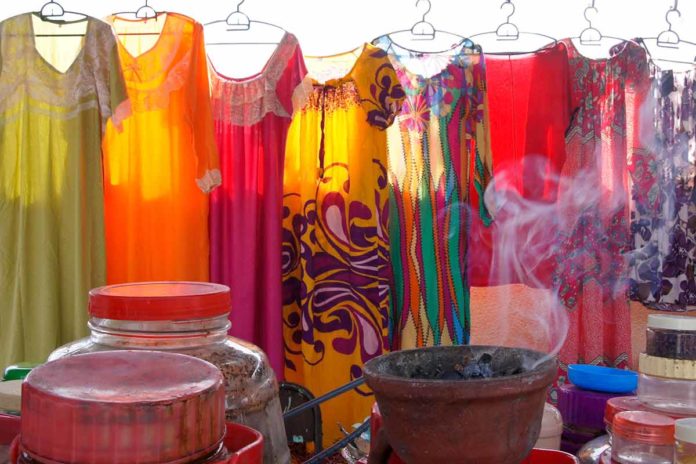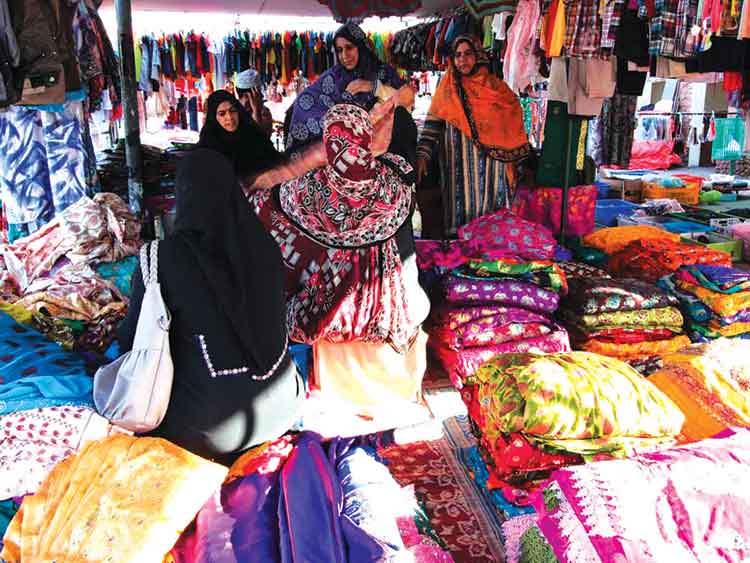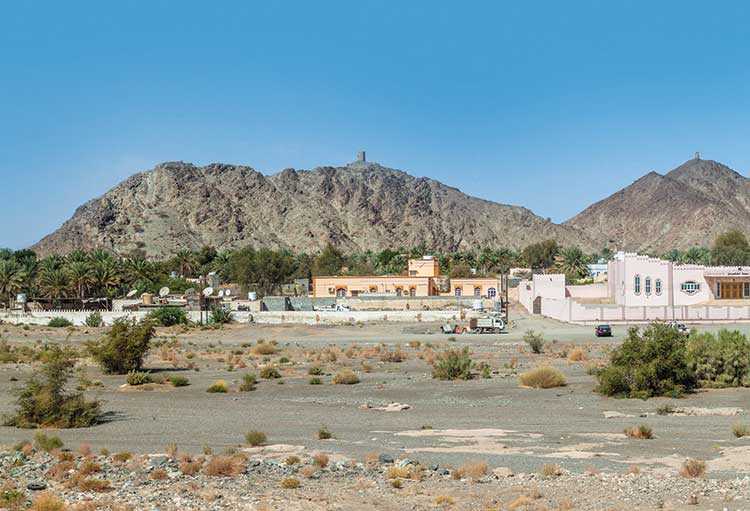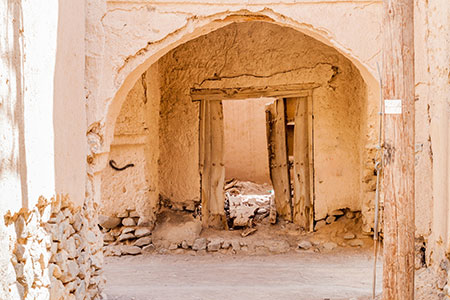Away from the beaten tracks of tourism and off the weekend radar is the quaint souq of Ibra, where Wednesdays are dedicated to a thriving women’s market. It is a market operated and run by women, exclusively for women; men are strictly not allowed in – whether to conduct business or to patronise sellers.
Located in the Wilayat of Ibra in A’Sharqiyah North Governorate, the market unfolds every Wednesday, catering to women within and outside the region, with tourists also flocking in to catch the dramatic presentation of clothes, foods, artefacts and handmade crafts. The day’s proceedings begin quite early in the morning to make the most of the pleasant morning hours. The market is busy from dawn until 1pm, when the ladies close shop and call it a day – until the next Wednesday.
The chatter of laughter wafting from the market and the bargains to lower the price of products on sale create a festive ambience in and around the market place. Women are known to indulge in tough negotiations to add to the seriousness of the market place. On sale are fabrics and tailoring accessories like embroidered appendages and home ware products that have been sourced from wholesalers or handicraft workers.
The popularity of this souq has made it a must-visit destination for women travellers and has earned it an entry in the ‘54 Interesting Facts About Oman’ on the international https://thefactfile.org/ site. Listed number 38, the entry reads thus: ‘Women-only souq is an open-air marketplace or commercial quarter in Western Asian and North African cities. (The equivalent Persian term is ‘bazaar’ – Wikipedia.org). It takes place every Wednesday in the city of Ibra. Only women are allowed to participate in this open-air marketplace. Women sell and buy a variety of things, including jewellery and spices.’
While there are no written documents to ascertain the inception of this dedicated market, most people assume that it came into existence in the early 90s when women of the area got together to find a common ground to sell their products. On hindsight, it might have cropped up to fulfil a need of the time, as women, generally, aren’t comfortable bargaining with male vendors in the market. And as women came together and bandied about the significance of having their own dedicated market, it earned immediate endorsement from women buyers who were waiting for such a venture to spring up in their locality.
The market itself is arranged around a double courtyard, making it easy and convenient for shoppers to walk around the stalls and make their pick of fresh vegetables, clothes and just about anything that is found in a regular souq. While there are serious vendors who mean business, the atmosphere is casual and the proceedings appear to be more of a friendly banter, especially with regulars who pass by the market for some catching up with friends and acquaintances. For tourists it is a throbbing hub of Oman’s eclectic culture which comes through in the colourful displays of fabrics and embroidery works, with some skilled women creating little handicrafts and embroidery patches right there inside the marketplace.
About Ibra
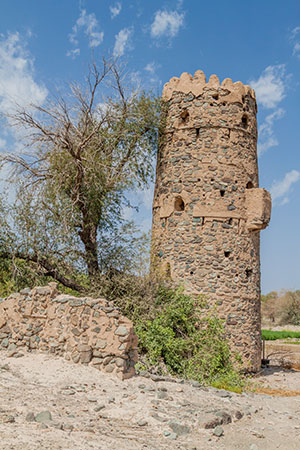
Located about 150 kilometres from Muscat, Ibra has been described as the Gateway to the eastern region of Oman. Historically significant, it stands today as a relic of Oman’s past with abandoned villages standing alongside old castles and watchtowers that embody its strong role in the nation’s early developmental stages. It is one of the oldest cities in the country and is reckoned for its importance as a centre for traders and artisans, and as well as for education and religious growth.
Its proximity to Muscat and the widening of infrastructural facilities have made Ibra a popular destination in the itinerary of travellers visiting Oman for tourism; it is also a choice for weekend outing among residents who are attracted by its natural vistas and the monumental edifices surrounding it – including the Wednesday souq that has become a legend of sorts among novelty seekers. The souq itself, which is operational every day of the week, is famous for its handicrafts, agricultural products and a host of everyday items. It also has dedicated vendors dealing in silver jewellery and the local delicacy, halwa.
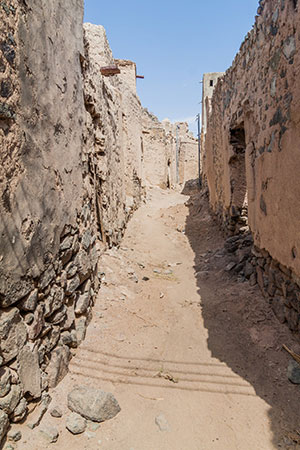
Regulars look at Ibra as a stopover point or an overnight stop while visiting some of the natural attractions around it. One such is the Wadi Bani Khalid, which is one of the most popular wadis in the country with clear water bodies, lush green foliage and striking mountains hemming it. Visitors seeking some quietude can check out the abandoned towns of Al Kanatar and Al Musisifeh, which feature traditional mud-brick houses, most of which are in crumbles. A walk along these villages will provide a peek into life in Oman before Renaissance.
